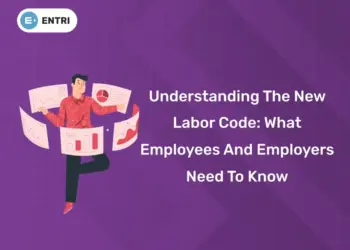Table of Contents
Project management and data science have been intertwined through the function of the data science project manager. Opportunities for Data Science project manager roles have increased due to the growing need for people with a particular combination of technical expertise and managerial aptitude.
If you are an aspiring Data Science Project Manager, the information in this article can help guide you on your path toward a lucrative career in this exciting and growing industry. Here we’re covering the Data Science Project Manager description — Roles and Responsibilities of a Data Science Project Manager, Skills Required for a Data Science Project Manager, what does a Data Science Project Manager do, How To Become a Data Science Project Manager, Salary of a Data Science Project Manager, Tips to be an Effective Project Manager in Data Science.
What is Data Science?
Data science is a multidisciplinary field that focuses on extracting knowledge and insights from both structured and unstructured data utilising scientific methods, algorithms, processes, and systems. To analyse, understand, and extract significant patterns or insights from data, it integrates elements of computer science, statistics, mathematics, and domain experience.
In order to find patterns, anticipate the future, and resolve challenging issues, data scientists gather, process, and clean enormous amounts of data. They then use a variety of methods, including statistical analysis, machine learning, data mining, and visualisation. They work with a range of datasets to extract useful data that can be applied to various phenomena, process optimisation, decision-making, and product and service improvement.
Data Science versus Data Scientist
The Data science and a data scientist are closely related but refer to different aspects within the realm of working with data.
Data Science:
It’s the interdisciplinary field that involves the methods, processes, algorithms, and systems used to extract insights and knowledge from data. Data science encompasses a wide range of activities such as data collection, data cleaning, exploratory data analysis, statistical modeling, machine learning, data visualization, and more. It’s the holistic approach to understanding and utilizing data to solve problems, make predictions, or derive valuable insights.
Data Scientist:
A data scientist is an individual who practices data science. They are professionals with a skill set that combines expertise in areas like mathematics, statistics, programming, domain knowledge, and problem-solving. Data scientists are responsible for applying various tools and techniques to analyze data, build models, extract meaningful insights, and communicate these findings to stakeholders. They work on real-world problems, leveraging their knowledge and skills to derive actionable insights or solutions from data.
Who is a Data Science Project Manager?
1: Which of the following algorithms is most suitable for classification tasks?
A Data Science Project Manager is a professional who oversees and manages projects related to data science initiatives within an organization. Their role involves a combination of project management skills, domain expertise, and an understanding of data science methodologies.
Overall, a Data Science Project Manager plays a pivotal role in ensuring that data science projects are executed efficiently, meeting the objectives set by the organization while managing resources, timelines, and expectations. They bridge the gap between technical teams and business stakeholders, ensuring that the project aligns with both technical requirements and strategic goals.
- Project Management: They lead data science projects from inception to completion, defining project scopes, setting goals, establishing timelines, allocating resources, and managing budgets. They’re responsible for ensuring that the project stays on track, meets deadlines, and delivers the desired outcomes.
- Team Coordination: Data Science Project Managers work closely with cross-functional teams, including data scientists, analysts, engineers, and business stakeholders. They facilitate collaboration, communication, and coordination among team members to ensure everyone is aligned with project goals.
- Understanding of Data Science: While they may not be data scientists themselves, they possess a solid understanding of data science concepts, methodologies, and technologies. This enables them to effectively communicate with the technical team, understand project requirements, and make informed decisions.
- Stakeholder Management: Data Science Project Managers liaise with various stakeholders, including business leaders, clients, or other departments within the organization. They ensure that project deliverables align with business objectives and that stakeholders are informed about project progress.
- Documentation and Reporting: They oversee the documentation of project details, progress reports, and outcomes. Clear and concise reporting on project status, milestones achieved, and challenges faced is a crucial aspect of their role.
|
Explore These High Demand Courses |
||
Roles and Responsibilities of a Data Science Project Manager
The role of a Data Science Project Manager involves a range of responsibilities that revolve around overseeing the planning, execution, and delivery of data science projects within an organization. Here’s an outline of their roles and responsibilities:
- Project Planning and Strategy:
- Define project scope, objectives, and deliverables in collaboration with stakeholders.
- Develop project plans, timelines, and resource allocation strategies.
- Team Leadership and Coordination:
- Assemble and lead cross-functional teams comprising data scientists, analysts, engineers, and other relevant professionals.
- Facilitate communication and collaboration among team members.
- Resource Management:
- Manage resources effectively, including budget allocation, staffing, and tool procurement if necessary.
- Optimize resource utilization to ensure efficient project delivery.
- Risk Management and Problem-solving:
- Identify potential risks and challenges and develop contingency plans to mitigate them.
- Address technical issues, obstacles, or changes in project scope promptly and effectively.
- Stakeholder Communication and Management:
- Liaise with stakeholders, including business leaders, clients, and other departments.
- Communicate project progress, key milestones, and any deviations from the initial plan.
- Quality Assurance and Documentation:
- Oversee the quality of project deliverables, ensuring they meet established standards.
- Ensure proper documentation of project details, methodologies used, and outcomes achieved.
Skills Required for a Data Science Project Manager
A Data Science Project Manager needs a diverse skill set that combines technical expertise, project management capabilities, and excellent communication skills to effectively lead and manage data science projects. Here are the key skills required:
- Project Management Skills:
- Planning and Organization: Ability to create project plans, define milestones, set timelines, and allocate resources effectively.
- Risk Management: Identifying potential risks and developing mitigation strategies to ensure project success.
- Budgeting and Resource Allocation: Managing project budgets and optimizing resource utilization.
- Data Science Knowledge:
- Understanding of Data Science Concepts: Familiarity with data science methodologies, algorithms, and technologies to comprehend project requirements and guide technical teams.
- Knowledge of Tools and Technologies: Awareness of data analysis tools, machine learning frameworks, and data visualization platforms commonly used in the field.
- Leadership and Team Management:
- Team Leadership: Ability to lead and inspire cross-functional teams, fostering collaboration and synergy among members.
- Mentorship and Support: Providing guidance, coaching, and support to team members throughout the project lifecycle.
- Communication Skills:
- Stakeholder Communication: Effective communication with stakeholders, including technical teams, business leaders, and clients, ensuring alignment and understanding of project objectives and progress.
- Presentation Skills: Ability to create and deliver clear, concise, and compelling presentations and reports to convey complex technical information to non-technical stakeholders.
- Problem-solving and Decision-making:
- Analytical Thinking: Strong analytical and problem-solving skills to address challenges and make data-driven decisions.
- Adaptability and Flexibility: Ability to adapt to changes in project scope, requirements, or timelines while making informed decisions.
- Ethical and Regulatory Awareness:
- Data Ethics: Understanding ethical considerations related to data handling, privacy, and compliance with relevant regulations and standards.
- Continuous Learning and Improvement:
- Adaptability to New Technologies: Keeping up-to-date with advancements in data science methodologies, tools, and technologies to drive innovation and improvement in project outcomes.
🚀 Start Coding Today! Enroll Now with Easy EMI Options. 💳✨
Equip yourself with in-demand skills to land top-tier roles in the data-driven world.
Start Learning Now with EMI OptionsHow To Become a Data Science Project Manager: A Step By Step Guide
Becoming a Data Science Project Manager can be an exciting and rewarding career choice, combining the best Data Science expertise and project management skills. In this guide, we’ll walk you through the essential steps to position yourself as a sought-after project manager for data science, ensuring you stay ahead in this rapidly evolving field.
Step1: Gain a Strong Foundation in Data Science
- It’s essential to first understand the foundations of data science in order to become a skilled project manager. Enrol in an extensive data science course covering machine learning, data analysis, and data visualisation. You will gain the technical know-how required to comprehend the intricacies of data projects and make wise judgements as a result of this.
Step2: Develop Project Management Skills
- You will need to be skilled at leading teams, controlling resources, and making sure projects are completed on schedule and under budget if you want to work as a Data Science project manager. Invest in project management education and certifications to improve your ability to organise, plan, and carry out data-driven projects successfully.
Step3: Work on Real-World Data Science Projects
- Experiential learning is extremely valuable in the field of data science. Work together on practical Data Science projects to put your skills to use, overcome real-world problems, and develop a solid portfolio. Your resume and clientele will notice that you have real-world experience.
Step4: Stay Updated with the Future of Data Science
- Data science is a dynamic field that is always changing in response to new trends and technology. Keep abreast on the most recent developments and innovations in data science to stay ahead of the curve. To increase your expertise, go to conferences, join Data Science communities, and talk to professionals in the field.
Data Science Project Manager Salary
This position is managerial in nature and requires making decisions. As a liaison between the client and the group of analysts, scientists, and data architects, data science managers oversee the day-to-day activities of the project. Despite not being in control of the technology’s creation, they nonetheless need to comprehend it. Average salary is $167,012K. Pay range: $130,000 – $273,000.
- In India, a data science project manager makes, on average, ₹42,06,639 annually. A Data Science Project Manager in India can expect to receive an extra ₹5,60,885 on average, with a range of ₹5,60,885 to ₹5,60,885.
Tips to be an Effective Project Manager in Data Science
1. Master Project Management Basics
- The majority of project management best practises and concepts are applicable to all types of projects. You have resources, restrictions, risks, and objectives whether you manage a data science project or a building project. Additionally, it is your responsibility to lead a team and all of its resources to achieve the goals as quickly and successfully as you can. Learn the essential project management techniques to succeed in any business, including: resource management, schedule management, scope management, risk management.
2. Understand the Nuances of Data Science
- Many professionals find it difficult to understand the concept of data science because it is a new area. In order to effectively manage your projects as a data science project manager, you must be aware of these subtleties.
- Above all, learn how a data science project differs from a software engineering one. Although these domains heavily overlap, data science is less certain and more exploratory. Also, there are differences between the software development life cycle and the data science life cycle. Therefore, embrace and make accommodations for the unknown issues in data science rather than trying to fit data science into a software box.
3. Be Agile
- In most cases, data science projects deal with ambiguous problems with unclear solutions. As a result, you must direct your initiatives to clearly describe the problem space and plan out a solution that addresses those issues. This is the area of great agility. The goal of agile data science is:
- Apply repetitions. These iterations are frequently used in data science to investigate and evaluate hypotheses. Every iteration ought to produce a learning that aids in setting priorities for subsequent iterations.
- As much as possible, limit the number of iterations while maintaining their significance. To assist you in achieving this, the data science minimal viable product concept is a helpful design.
- After every iteration, get input. It’s all about learning, especially in the beginning of the project. So, as soon as you can, get input. You can gain knowledge from the data thanks to the project’s robust data component. However, remember to solicit input from your stakeholders as well.
- Make vertical cuts in your work. Essentially, attempt to offer your project one value stream at a time by breaking it up into small, manageable pieces of value.
4. Facilitate Collaboration Frameworks
- Effective project managers, regardless of their industry, foster cooperation not only inside the project team but also between the partner and wider stakeholder groups. You can use a wide variety of frameworks. Recognise the various frameworks and know which to use for what situations.
- Kanban – A lightweight framework focused on minimizing work-in-progress and maximizing throughput.
- Scrum – A product-focused framework focused on incremental batches of work delivered in fixed-length bursts of work.
- Data Driven Scrum – A variant of Scrum catering to data science projects.
5. Embrace the Challenge
- Project management for data science can appear intimidating, particularly in the beginning. You might be in charge of providing an ill-defined problem with an unknown answer. It’s possible that you’re not even aware of how likely a solution is!
- But approach this task with joy. Your mindset and self-assurance can frequently make the difference between a project’s success and failure.
Learn Data science and Machine learning with Placement. Enroll Now!
🚀 Start Coding Today! Enroll Now with Easy EMI Options. 💳✨
Equip yourself with in-demand skills to land top-tier roles in the data-driven world.
Start Learning Now with EMI OptionsEntri App- Become a Certified Data Scientist
If you have quite understood and realised about the significance and importance of Data science in the IT sector and decides to study A course for the coming days, the most confusing thought will be, what course should be selected. Here we discuss, benefits of taking Entri’s Data science and Machine language course.
Have a Valid Certification
It can be studied in different modes. I am not saying you can study well using the YouTube videos or tutorials, it will transform into a half-cooked egg in a pan. There may be so many Data Science online courses but courses which provide a valid certificate are so rare. Entri Data Science and Machine Language learning course is equipped with providing you a valid certificate. The highlights of the Entri certificate in Entri Data Science and Machine Language learning course:
- Certificate which shows your excellency and proficiency in Python
- Global Acceptance for the certificate
- Provided from a valid authority which can be cross verified by the verifier
- Provided based on the performance and excellence
Planned Course with a Perfect Curriculum
Entri is coming not with some video classes but with a planned curriculum and perfectly designed syllabus for the completion of the course. The benefit of the planned curriculum and syllabus is that you won’t be having just video classes, but you will be having a course where you can pre estimate what you are studying, what you will be provided, what all things have already given and what all things are yet to be given while you are in the course. The students will be able to question the institution for what they have promised to do. This kind of transparency will not be provided with any of the other courses.
The syllabus of the course will be distributed in the following domains:
- PYTHON PROGRAMMING
- NUMPY, PANDAS, MATPLOTLIB & SQL
- STATISTICS, SCIKIT-LEARN & MACHINE LEARNING
- HANDS-ON PROJECTS
- DEEP LEARNING
- POWER BI
- JOB DIRECTIONS
FAQs
Q. What skills do you need to be a Data Science Project Manager?
Ans: Someone in such a position ideally has a combination of technical expertise, project management skills, and strong communication and leadership abilities. They should possess a deep understanding of big data technologies and tools, and have experience in data analysis, data management, and data visualization.
Q. What is the salary of Data Science Project Manager?
Ans: The average salary for Data Science Project Manager is ₹42,06,639 per year in the India. The average additional cash compensation for a Data Science Project Manager in the India is ₹5,60,885, with a range from ₹5,60,885 – ₹5,60,885.
Q. Can a Data Scientist be a Project Manager?
Ans: Becoming a Data Science Project Manager can be an exciting and rewarding career choice, combining the best Data Science expertise and project management skills.
Q. Does Data Science Project Manager need coding skills?
Ans: Sure, they are very different people within a company. But as a project manager, you are overseeing a team and must speak fluently across skill sets. Knowing how to speak about code, and even being able to do some basic Python, HTML, or C++ will take you far.












